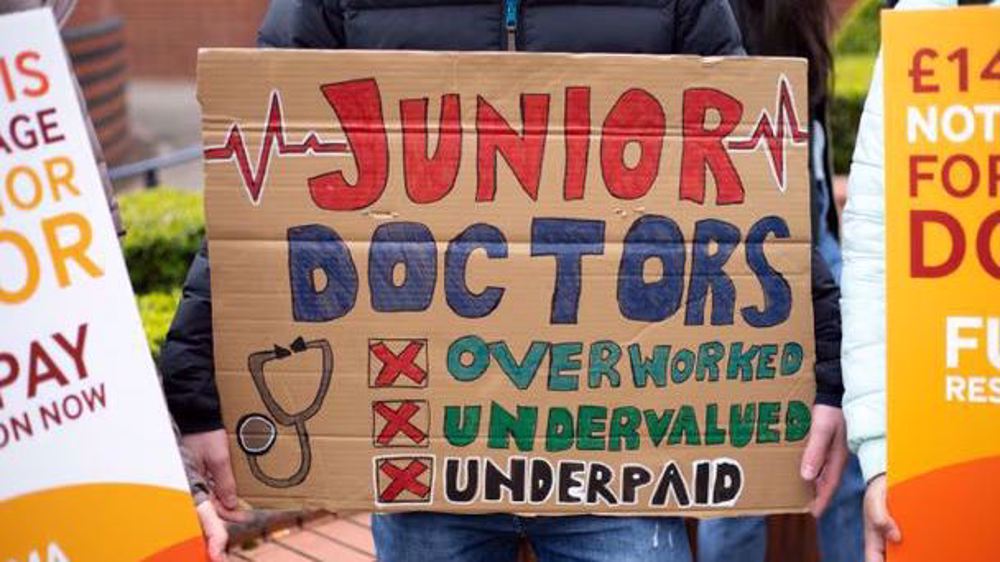‘Shocking political failure’: Health inequalities led to 1m early deaths in UK in last decade
More than one million premature deaths occurred in England in the last decade, due to a combination of poverty, austerity, and Covid, according to new research by one of the UK’s leading public health experts.
The study, titled Health Inequalities, Lives Cut Short, found that between 2011 and 2019, 1,062,334 people died earlier than they would have done if they lived in areas where the richest 10 percent of the population reside.
In addition, 151,615 premature deaths were recorded in 2020, although this number was higher than predicted due to the COVID-19 pandemic.
Carried out by the Institute of Health Equity at University College London led by Sir Michael Marmot, the figures given in the study revealed the extent to which stark economic and social inequalities are leading to poorer people dying early from cancer, heart problems, and other diseases.
The study’s author Prof. Peter Goldblatt directly attributed 148,000 deaths to austerity measures implemented by the coalition government since 2010 by comparing them with levels seen earlier.
Marmot, who authored a seminal review into health inequalities in the UK in 2010, said the premature deaths and widening inequalities were a “dismal state of affairs.”
“One million premature deaths, made dramatically worse by austerity, is a shocking political failure. The worse health of the more deprived 90 percent of the population, compared to the best-off 10 percent, means that health inequalities involve the majority of society,” he said.
He said the UK could provide “a case study example of what not to do to reduce health inequalities.”
“The only other developed country doing worse is the USA, where life expectancy is falling.”
“Our country has become poor and unhealthy, where a few rich, healthy people live. People care about their health, but it is deteriorating, with their lives shortening, through no fault of their own. Political leaders can choose to prioritize everyone’s health, or not. Currently, they are not.”
An analysis by Cancer Research UK has estimated that there are 33,000 extra cases of cancer in the UK each year associated with deprivation, while women from England’s poorest areas die on average five years sooner than their wealthier counterparts.
During the coronavirus pandemic, people from black and Asian backgrounds were at greater risk of dying from the virus than their white counterparts.
Previous research has shown that policies introduced by the Labour governments between 1997 and 2010, which focused on early years and education, were beginning to reduce glaring health inequalities.
However, after it ended in 2010, coinciding with the introduction of austerity, health inequalities began to increase again.
A 2020 report, titled Health Equity in England: the Marmot Review 10 Years On found that improvements to life expectancy had stalled, with the greatest slowdown seen in the most deprived areas, and had even declined for women in the poorest 10 precent of areas.
“Fourteen years of Conservative wreckage of Labour’s legacy has left our country with an NHS on its knees, an increasingly unhealthy society, with appalling consequences for people,” Wes Streeting, the shadow health secretary, said.
Marmot urged party leaders to make health policies the “central plank” of the next government and stop policies harming health and widening health inequalities.
“To MPs,” he said, “if you care about the health of your constituents, you must be appalled by their deteriorating health.”
Yemeni FM: Israel’s sponsors accountable for ongoing aggression on Sana’a
Eight Palestinians killed as Israel attacks Gaza school, hospitals
VIDEO | Rome, Milan host new protests in solidarity with Palestinians
Dec. 21: ‘Axis of Resistance’ operations against Israeli occupation
Spain jurists demand ties with Israel ties be cut
VIDEO | Press TV's news headlines
VIDEO | Iran honors top Science Olympiad medalists
VIDEO | Austrians arrested at Gaza protest in Vienna













 This makes it easy to access the Press TV website
This makes it easy to access the Press TV website